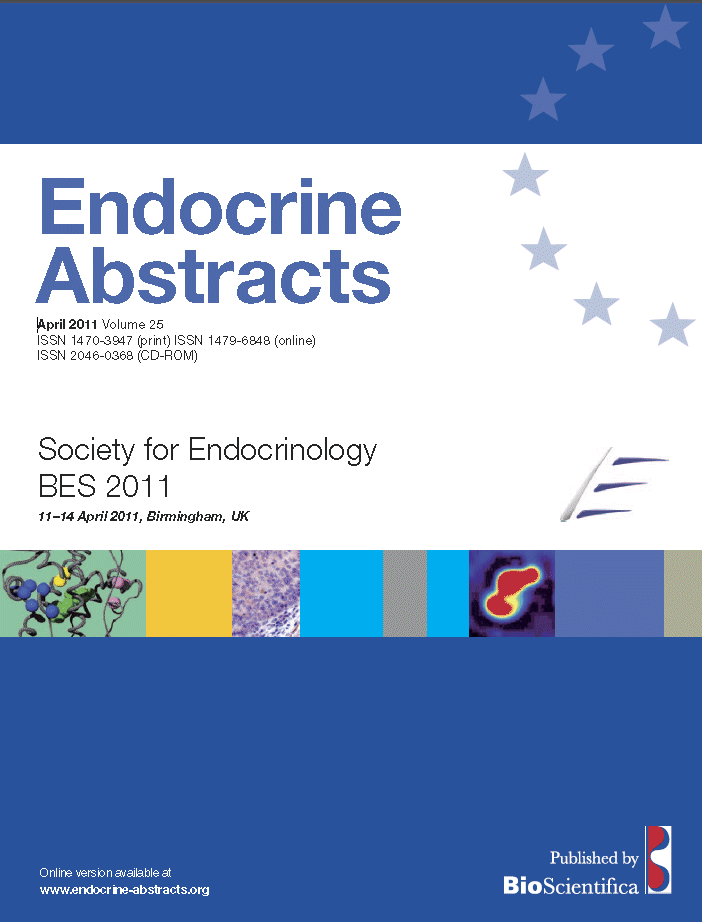Searchable abstracts of presentations at key conferences in endocrinology
Special Interest Groups
Obesity special interest group
ea0025sig2.1 | Obesity special interest group | SFEBES2011
Gut hormone based polypharmacy: same benefits without the surgery?
Obesity is reaching epidemic levels especially in western countries and has become a major public health issue because is frequently associated with other comorbidities such as hypertension, dyslipidemia and diabetes. Therefore, there is increasing interest in the development of therapies against obesity that can offer additional improvements in those associated comorbidities. Unfortunately the current pharmacological treatments have demonstrated limited efficacy, leaving bari...
ea0025sig2.2 | Obesity special interest group | SFEBES2011
Gut, hormones, weight loss and metabolic improvement after bariatric surgery
Background: Bariatric surgery is currently the only evidence based treatment for morbid obesity. However, we have limited knowledge regarding the mechanism of action in many of procedures used.Method: This is a review of the results from studies on weight loss, metabolic normalisation and mechanism of action in patients undergoing bariatric surgery.Results: In the Swedish Obese Subject (SOS) study 2000 patients who underwent bariat...
ea0025sig2.3 | Obesity special interest group | SFEBES2011
Pre- and post-operative management of patients undergoing bariatric surgery
Current evidence suggests that bariatric surgery offers the best hope for substantial and sustainable weight loss in patients with morbid obesity. These facts, coupled with the improved minimally invasive procedures, have driven a four-fold increase in the number of bariatric operations performed over recent years in the UK.Bariatric surgery though is not suitable for everyone. A BMI>59, Age>50, smoking, sleep apnoea and CVD disease all increase ...
ea0025sig2.4 | Obesity special interest group | SFEBES2011
Bariatric surgery: a cure for diabetes?
Type 2 diabetes is increasing in prevalence and is associated with, amongst others, premature CVD, retinopathy and kidney failure. The aim of care is to minimise the complications through euglycaemia but in the long term, this is rarely possible. Treatment of hypertension and dyslipidaemia also has benefit and patients are often consigned to a lifetime of polypharmacy. Quality of life is affected, especially in those with complications and in those who need treatment with insu...




